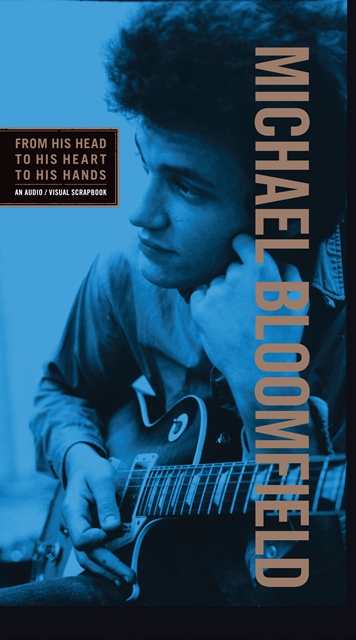With their self-conscious blend of flamenco, Latin and pop creating the improbable-sounding Catalonian rumba, the Gipsy Kings, who played to an ecstatic Royal Albert Hall last night, are one of the pioneers of the world music genre. Their contribution has just been recognised by the Grammys, where they shared this year’s World Music prize (with Ladysmith Black Mambazo) for their new album Savor Flamenco.

Ever since becoming a parent – given that it's my job to look at how music connects to its audience – thoughts about what gets children engaged with it have rarely been far from my mind. It brings home a lot of questions about how much of our reactions to music are learned and how much instinctive, about the functions it serves in our lives, about whether old platitudes about music bringing people together carry any weight and so on. And occasionally it makes me listen with fresh ears too.

Drenge certainly pull in a diverse crowd to their shows these days. Prior to the band coming on stage for this sell-out gig, there was a group of 40-somethings in fairly new-looking leather jackets to my left, talking about Tom Watson MP (who famously recommended the band to Ed Miliband in a resignation letter), and to my right a group of teenagers, sniffing from a bottle of amyl nitrate and trying not to puke.

He cuts a dash, that man Cave. Very tall, gangly, with his idiosyncratic snub nose and upside-down-U-shaped hair, the Australian is a one-off. His growly music isn’t always easy to like. In his fury days with the Birthday Party and the Bad Seeds, he was a post-punk rock poet. He has, of course, oceans of fans. It goes without saying that they will be a-quiver at 20,000 Days on Earth (20,000 was the number of mortal days Cave had notched up three years ago when this documentary started: he’s now 57).

The Strypes broke through initially with an amped-up version of the blues, akin to the sounds of the early Sixties London blues rock explosion that gave us the Rolling Stones. Tonight proved that they’ve since taken a Tardis through the decades - although no further than 1992 or so - but have kept fast hold of their smash’n’grab garage band ethos. Where bands such as Foals and Everything Everything explore futurist technology in a rather fussy, uninspiring manner, these Irish teenagers engage with the past in a way that’s visceral and hugely exciting.

If you're looking for good vibes, you could do worse than watch people who've queued up for a surprise show by a megastar finally getting through the doors, having paid only a tenner. The buzz on the way into the Shepherds Bush Empire last night, in fact, was a real tonic – people whooping, spontaneously singing, grinning inanely. A quite peculiar mix of celebrities – Nick Grimshaw, Cara Delevingne, Alan Yentob and George Clinton – all took to their seats looking as excited as the 3,000-odd standard punters.

 Michael Bloomfield: From his Head to his Heart to his Hands
Michael Bloomfield: From his Head to his Heart to his Hands

The emergence of artists’ collectives, bristling with idealism and wacky manifestoes, is usually a sign of a vigorous cultural scene. London’s new improvised music scene enjoys several successful examples, of which Loop is perhaps the most prominent. Last night’s Loop club night at the Vortex showed the idea at its best, combining new and established acts across a range of genres.

Bach, Duke Ellington and free jazz improvisation met at Cafe OTO last night, and joyously warped some minds. Composer Alexander Hawkins’ BBC Radio 3 commission, the nonet piece "One Tree Found", was part of last year’s Baroque Spring season. It takes the three-part structures of Bach’s trio sonatas for organ, adds echoes of Duke Ellington’s (known, Hawkins notes, as "The Hot Bach" at the height of his fame) numerous three-way orchestrations, and completes the creation with improvisations both contemporary and baroque in style.

Suzanne Vega clearly likes her new album, Tales from the Realm of the Queen of Pentacles. Either that or she’s got this promotional lark down to a fine art. Tonight we were treated to seven of its ten tracks, which is not something you might expect of someone who began their recording career in 1985 and has since released seven other albums and a fair few hit singles

